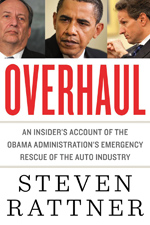Originally published in the New York Times.
AFTER years of post-recession somnolence, corporate takeovers and mergers have ballooned to their highest level since 2007, fueled in part by American companies’ fleeing the United States to save tax dollars.
Gaming the tax system has, of course, long been a popular blood sport for American business, particularly for pharmaceutical concerns and for technology darlings like Apple.
But these days, tax avoidance feels like a full-fledged business strategy, with American citizens as the losers.
At the moment, New York-based Pfizer is battling to acquire the British giant AstraZeneca. At $106 billion, that would be the largest of the current raft of tax-advantaged deals. If it’s completed, Pfizer would become a British company, saving it $1 billion or more annually because of Britain’s lower tax rate (21 percent and soon, 20 percent) and other potential breaks. By comparison, Pfizer is currently taxed at a 27 percent rate. Since 2008, about two dozen American companies have used mergers to shift their legal residence abroad through the process known as inversion. That’s about the same number as over the previous 25 years. All told, the raft of increasingly sophisticated tax-avoidance schemes has helped the share of corporate profits paid in taxes to drop significantly.
That’s not the only cost. When the New York eye-health company Bausch & Lomb put itself up for sale last year, Valeant — “Canadian” since 2010 — used the savings from its 3 to 5 percent tax rate to top the bidding.
Washington and Albany took an immediate tax hit. Just as quickly, Valeant — whose top brass operate from a converted Y.M.C.A. in Madison, N.J. — eliminated 400 of Bausch & Lomb’s 1,700 Rochester employees. After harsh criticism, the company promised to retain the remaining workers there.
Now Valeant is trying to buy rival Allergan and eliminate much of Allergan’s $458 million tax bill for 2013.
The tax dodge is hardly limited to pharma and tech. As part of their proposed merger, two huge ad giants — New York’s Omnicom and Paris’s Publicis — chose Britain as a tax “headquarters,” for an estimated $80 million a year in savings.
Meanwhile, even the quintessentially American drugstore chain Walgreens, which owns 45 percent of the European company Alliance Boots, is being lobbied by large shareholders to shift its tax home to Europe when its right to buy the remainder of that drugstore chain becomes active next year.
The recent cross-border deals often include one more goody for the companies. To help pay for the merger, the American corporations can utilize cash “trapped” abroad by rules requiring that 35 percent be paid to the Treasury on profits brought home.
Action is clearly needed. But most of the proposals floating around the capital are more focused on helping companies compete in the global tax race to the bottom.
Nor has President Obama been able to gain international cooperation to end this self-defeating competition.
At a minimum, Congress should embrace the president’s recent proposal to both restrict the use of inversions and tax a merged company as an American company if it is managed in the United States and has substantial business here. That meritorious provision needs to be coupled with more aggressive action against other egregious practices, such as using tax havens to transfer vast amounts of profits out of Uncle Sam’s reach.
A more ambitious, and therefore more politically difficult idea, would be to scrap our unworkable corporate tax system altogether and instead tax shareholders, first by eliminating low tax rates on capital gains and dividends.
That would offset only a small portion of the loss of corporate tax revenue (a projected $350 billion in 2015), so we should raise the balance by eliminating loopholes enjoyed by wealthy Americans, increasing rates on their earned income and potentially introducing new concepts, such as taxing gains on investments as stock prices rise rather than when they are sold.
The wealthy need not fear; eliminating corporate taxes would lead to a jump in business earnings and, consequently, stock prices. That would encourage similar actions by other countries. Otherwise, their companies might move here to enjoy a zero corporate tax rate.
Higher stock prices would also help pension funds, foundations and other tax-exempt institutions focused on social betterment.
While eliminating corporate taxation would be branded a giveaway, properly engineered reforms would provide a huge uplift to ordinary Americans.



